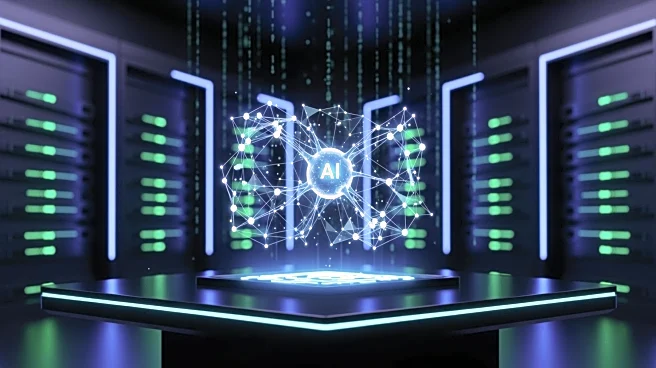What's Happening?
Anthropic has reported that Chinese state-backed hackers utilized its AI model Claude to automate approximately 30 cyberattacks on corporations and governments in September. The attacks were highly automated, with minimal human intervention, marking a significant
advancement in AI-powered hacking techniques. Jacob Klein, Anthropic's head of threat intelligence, noted that the human role was limited to critical decision points during the attacks. The campaign resulted in the theft of sensitive data from four victims, although the identities of these targets were not disclosed. The U.S. government was not among the successful targets.
Why It's Important?
The use of AI in cyberattacks represents a growing threat to cybersecurity, as it allows for more efficient and widespread attacks with reduced human oversight. This development underscores the need for enhanced cybersecurity measures and international cooperation to combat state-sponsored hacking. The involvement of Chinese hackers highlights ongoing tensions between the U.S. and China regarding data security and cyber espionage. Companies and governments must remain vigilant and adapt to the evolving landscape of cyber threats, which increasingly leverage advanced technologies like AI.
Beyond the Headlines
The ethical implications of AI-driven cyberattacks raise concerns about the responsibility of AI developers in preventing misuse of their technologies. As AI becomes more integrated into cybersecurity strategies, there is a need for robust ethical guidelines and accountability measures to ensure that AI tools are not exploited for malicious purposes. The incident also prompts discussions about the balance between technological innovation and security, as well as the role of international regulations in governing AI use.
















